Tourism in Vietnam is taking off, big time.
And it’s no surprise – the South East Asian nation has something to offer everyone. It has a rich culture, temples, a complex history, amazing food, beaches, mountains, caves… I could go on.
Whatever reason you travel for, I guarantee you’ll find something you love in Vietnam. Whether you’re planning a trip to Vietnam as a backpacker or are here for a holiday, it’s really important to get to know the country a little before you arrive.
While the country is enthralling, it’s complex, and I think it’s really crucial to do whatever possible to make sure that you are as respectful a traveller as possible here. Whether you’re spending one month in Vietnam or longer, or just a week or two, this guide of things to know before travelling to Vietnam will help you understand the country a little better, will highlight some things to not do, an will help with preparing for your trip.
I’m not a Vietnam travel expert – I’ve been to the country 4 times and have been to most of the popular places but there’s so much more to know about it – but I hope that these tips can help you when planning a trip to Vietnam!
There was a huge, devastating war here not that long ago
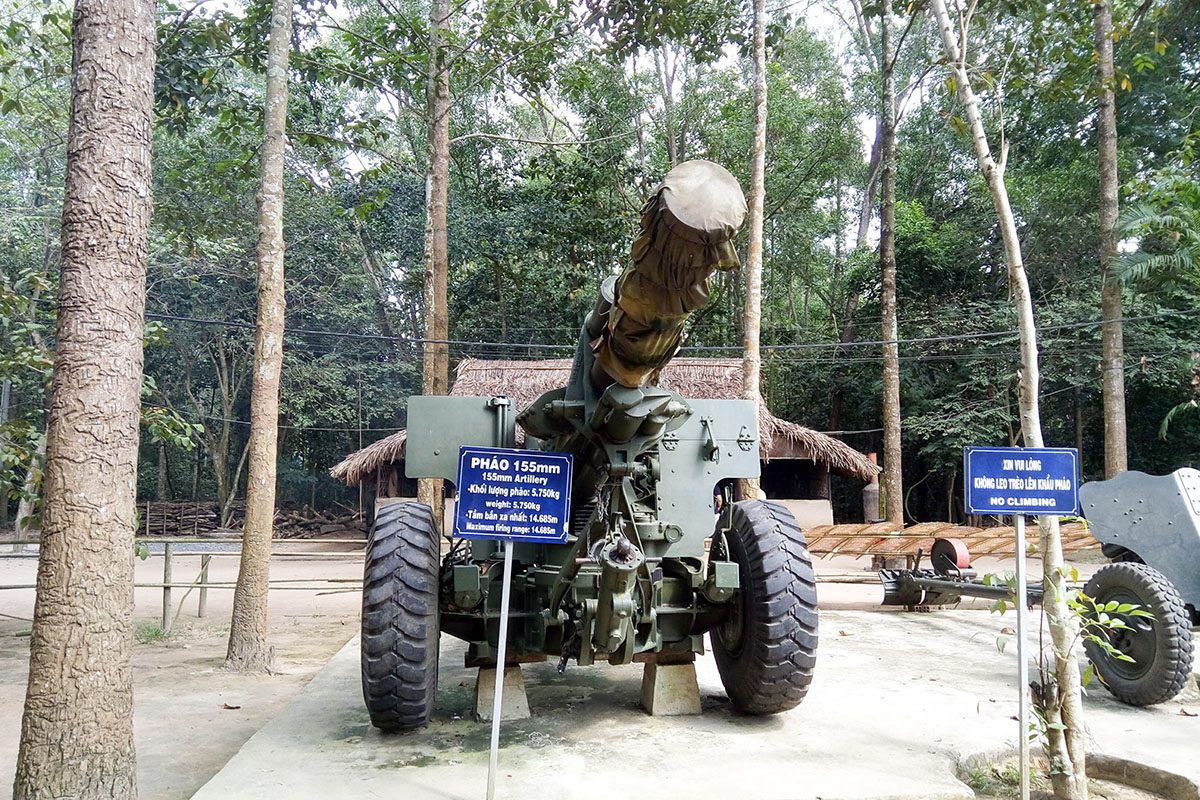
There are lots of places to learn about the Vietnam War in Vietnam itself, including museums, tours of the demilitarized zone and a drive along the Ho Chi Minh Trail, but it mightn’t be a bad idea to do some research about it before you go. Vietnam has been at war for a very, very long time, and this is something that all travelers should be mindful of when visiting the country.
The war was between the Viet Cong in the North and the South and the USA in the South. All sorts of horrendous things happened – the use of toxic substances such as Agent Orange is something that sticks in a lot of people’s minds after visiting.
The North was heavily bombed, and war was fought in the South. The older generation were alive during that time, and many fought the war.
Make sure you factor in time for nature
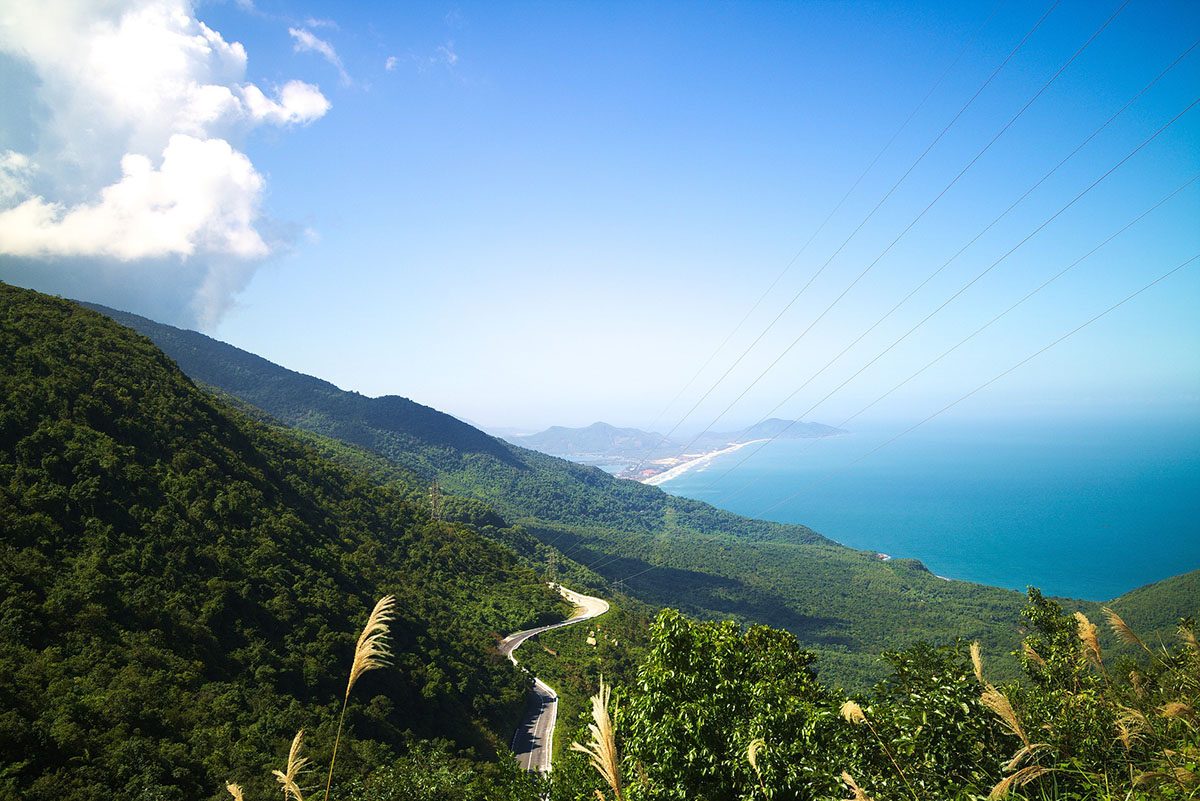
Vietnamese nature is just wonderful. There’s the world’s largest cave (you can only go into it if you’re an experienced caver, have $3000 lying around and are prepared to fight for tickets though), beautiful rice terraces at Sa Pa, the famous world UNESCO heritage site of Ha Long Bay, beautiful beaches, and the peaceful shores of the Mekong Delta.
It can be easy to get sucked into the cities and spend most of your time there, but I highly recommend taking some time to see how wonderful Vietnam’s nature is, even if it’s a bit more challenging to get there.
Vietnamese sleeper buses are a fantastic establishment
These inventions are part fab, part absolutely terrifying. Everyone gets their own self-contained pod, where they can nearly lie down (the seats aren’t quite horizontal, but they’re reclined enough to feel like you are lying down rather than sitting).
They’re alright for all five foot three of me, but I imagine taller people may find them a bit uncomfortable – but they’re a great budget way of getting around the country.
Until they overtake, drive at what seems to be double the speed limit, and hair-raisingly slam breaks on seconds before they need to stop.
It’s all part of the journey. I’d still recommend them to anyone travelling in Vietnam, but maybe keep a tight hold on the sick bag that you’re provided with, ok?
And if you’re really not keen on the Vietnamese sleeper buses, you can get trains around the majority of the country.
To book buses or trains, you can use Bookaway – check it out here.
The country is very cheap for travel
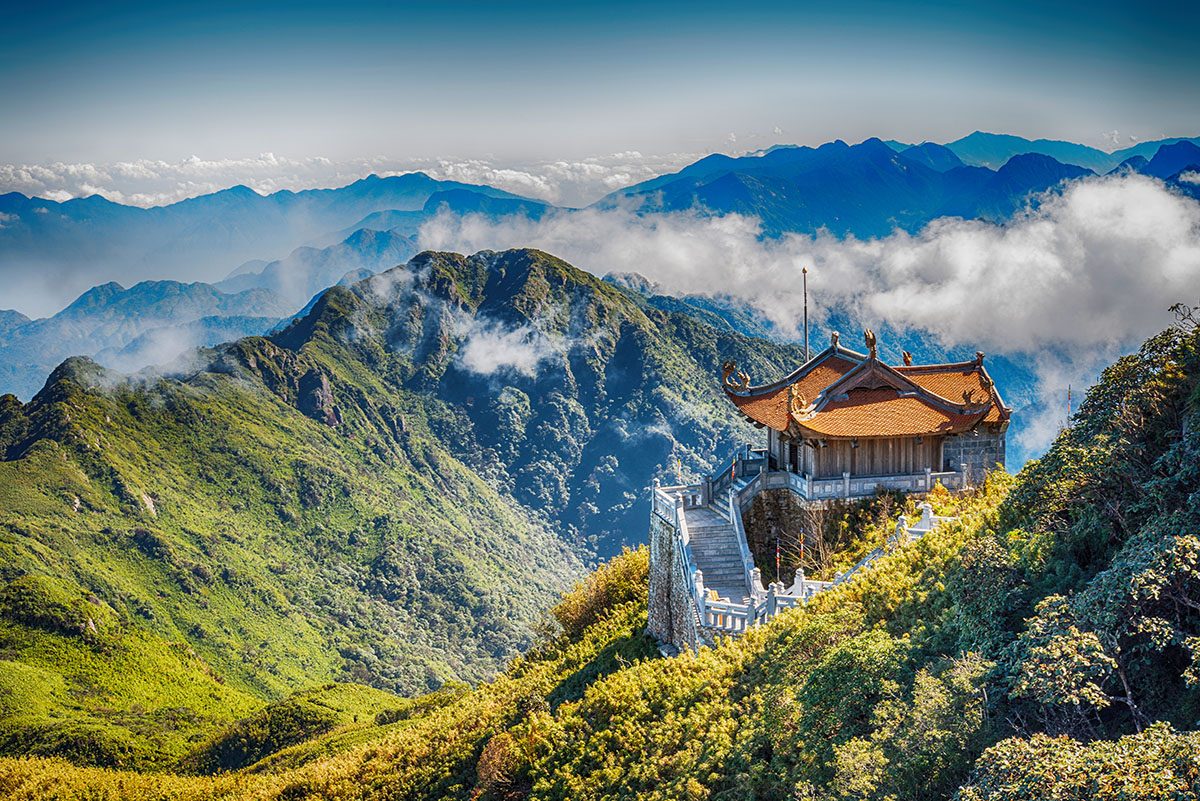
Even though Vietnam is more developed than Laos or Cambodia, it is much cheaper. Dorm rooms range between $3-$5, with privates starting from around $8 for a night.
You can get a night in a decent hotel for $30-$50, a street food dinner for $1, and a sit-down meal for $3-$5. Alcohol is insanely cheap, with pints of local beer starting at around 50 cents. Tours cost a bit more, but are well worth doing.
Your travel budget will go far in Vietnam.
The country is united, but still kind of divided
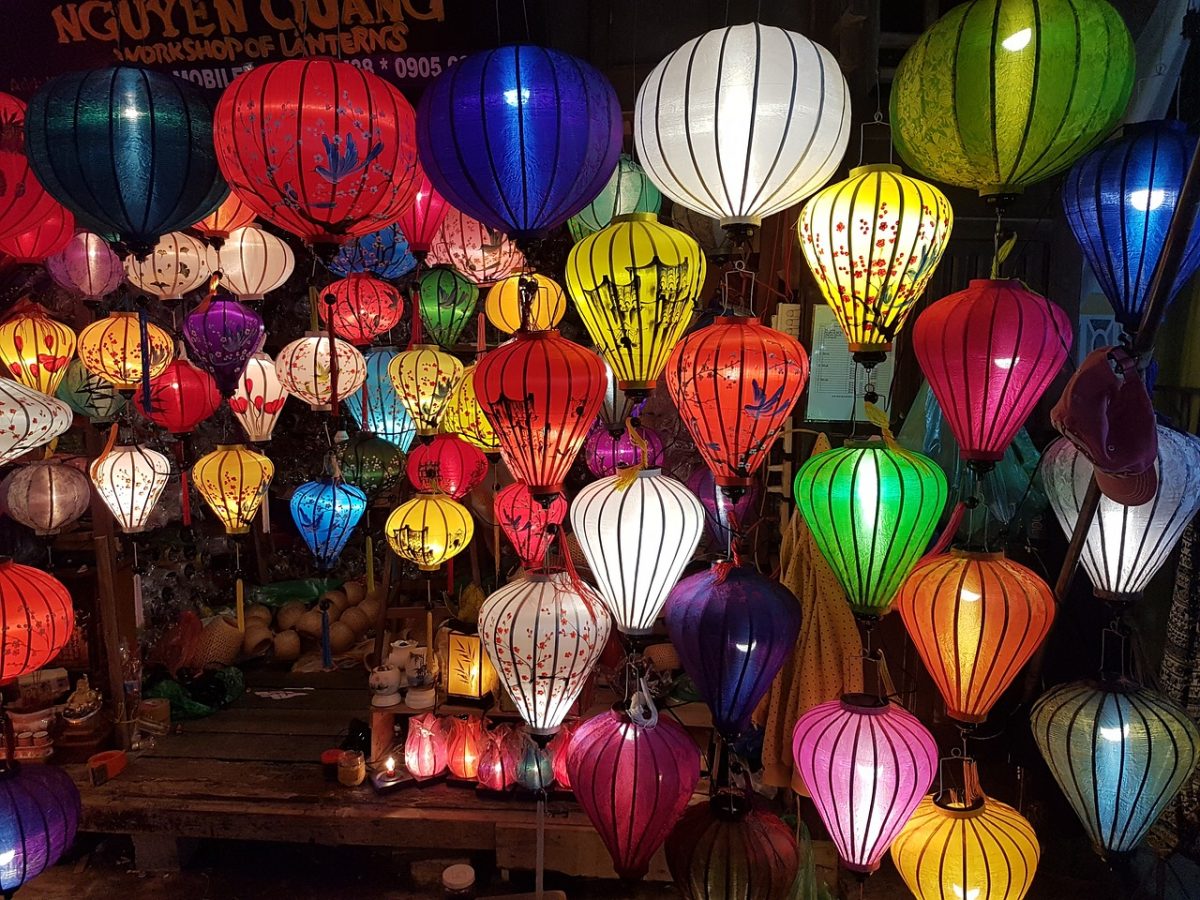
You’ll notice a clear difference between North and South Vietnam. The whole country is Communist, but the North is typically more so, with the South embracing a more Capitalist way of life.
Hanoi seems more traditional, with an extensive history, whereas Ho Chi Minh City seems to be embracing the future. The people also are very different, and have many differing views – my best advice when travelling to Vietnam would be to remain as neutral as possible when talking to them.
As a visitor to their country, you don’t and will never know the full story, so I think it’s best to not get too involved with these affairs.
Scams exist, but don’t be too paranoid about them
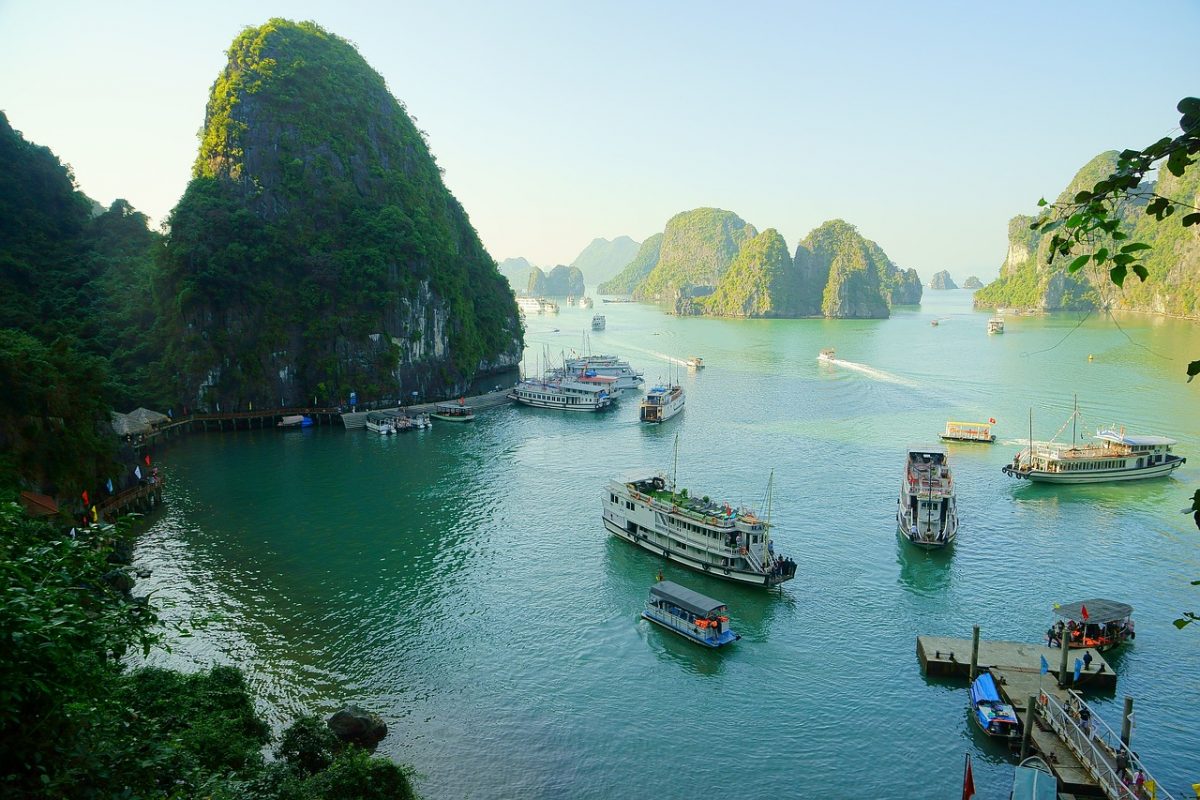
I get it, being scammed is frustrating.
And there are scams in Vietnam.
Most are easy to avoid once you know what they are: don’t accept anyone’s help with doing anything to your shoes, don’t pose for a photo without expecting to pay, keep an eye on taxi meters, and don’t accept any extras without confirming that they are free.
But please also bear in mind that most Vietnamese people are not scam artists.
I experienced a really frustrating situation where I’d shared a taxi with some other backpackers, where the taxi driver had agreed to take us for the price that was showing up on the Grab app, which was 170,000 dong.
There were 6 of us, and I couldn’t be bothered to do that maths so presumed we’d just pay 30,000 dong each, making it a total of 180,000. The driver clearly thought the same.
The others in this group however, thought otherwise and took 10 minutes sorting the money out (and being quite rude to the driver in the process), all for the sake of saving 10,000 dong between us. That amounted to a saving of about five pence each.
I really don’t think that driver was trying to overcharge us, and even if he was for five pence each it is not worth the hassle.
Yes, some people do try to overcharge tourists ridiculous amounts, and yes, that is frustrating. Obviously don’t do that, but when it’s a minor amount more, I tend to just leave it.
Vietnam is more developed than some other countries in South East Asia, but it still has the scars of the war, many people do still live beneath the poverty line and 10,000 dong isn’t much money to us, but is the cost of a local meal.
Ridiculous scams do frustrate me, but you know what frustrates me even more? Backpackers who are so paranoid about being scammed for the most minor amount of money, that they forget to show some respect and common decency.
Thankyou for coming to my TED talk.
You’ll probably need to use a motorbike at least once
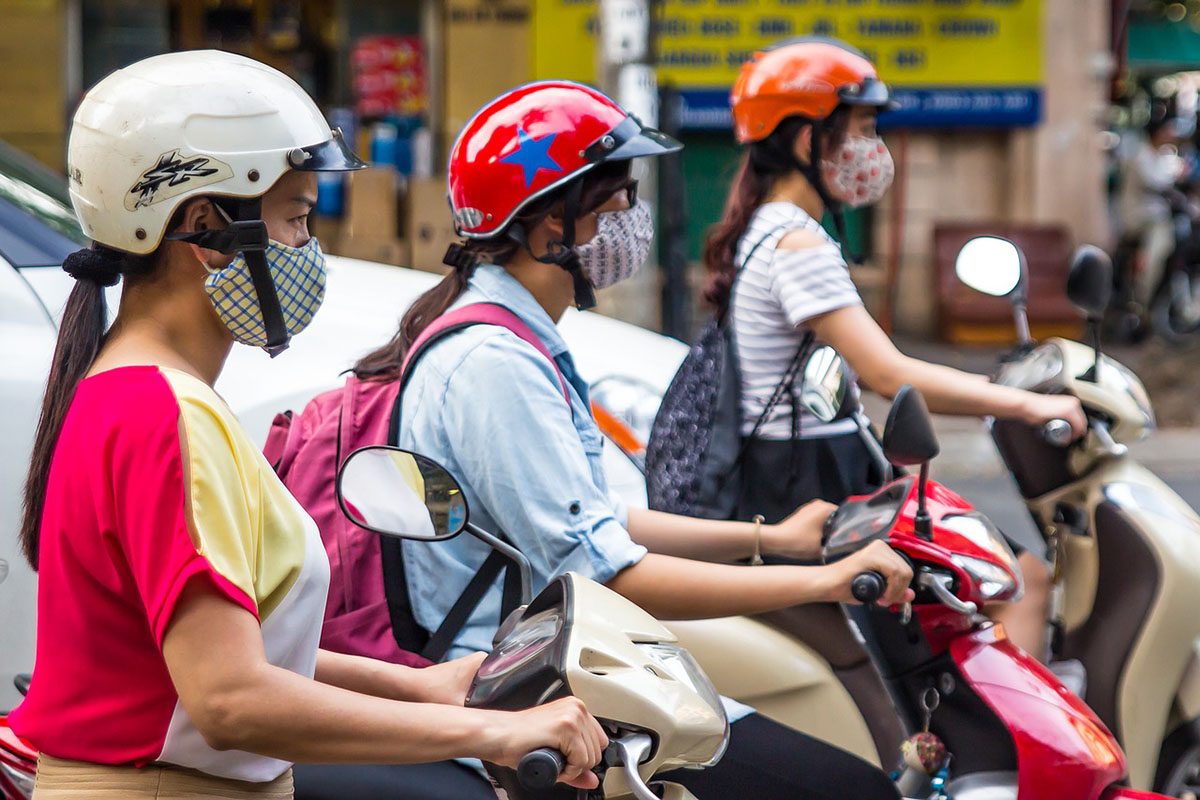
Vietnam thrives on motorbikes. Whether you arrive into the country in Hanoi or Saigon, the first thing you’ll notice is thousands of them weaving through the streets, beeping their horns, squeezing into impossibly tight gaps that have you clutching onto your seat – only for them to disappear in the crowd as each vehicle worms seamlessly around the next.
Motorbikes are kind of a big deal here. It takes a while to get from A to B in a car and bikes are much cheaper, meaning that most of the time locals offer you a lift, it will be on the back of a bike.
They’re also great fun – once you get over the fact that you’re not at all strapped to a vehicle that’s going 60-70 kmph over cliff roads and weaving through traffic (ok, you won’t be going 60-70kmph through traffic, but you get ma gist).
Honestly, I was so scared of being a passenger on bikes the first time in Vietnam I wouldn’t get motorbike taxis, but I did get used to them, realized they’re a lot cheaper and more fuel-efficient, and that feeling the wind in your hair while driving past the most EPIC nature is way better than seeing it from a car window.
BUT, I still won’t drive them.
Maybe one day I’ll learn properly and try, but I do think that too many foreigners go to Vietnam with no riding experience and think they can just hop in the seat and take off.
It’s not that easy, and there are a lot of accidents.
By all means, if you can ride a bike and have taken the time to learn, ride one with caution, but if you haven’t, please learn properly until you drive yourself.
Until then, Grab taxis are cheap and easy to use, and easy rider tours will take you to all the scenic spots in the country by bike.
Hoi An might not be all you expect it to be

I just don’t love Hoi An. It’s pretty, yes, and definitely has a charm – but you literally have to fight your way through hundreds of other tourists to see everything.
It’s also expensive, its famous lantern display is super wasteful, the locals are clearly quite sick of bratty tourists (not saying all tourists are bratty haha, I’m a tourist and I’m definitely not bratty, but there is more of a concentration of them in Hoi An than anywhere else in the country) and it’s the most inauthentic place I’ve seen in Vietnam.
On the flip side, the food is great, there’s a fab tea house (reaching out Tea House) that employs deaf people, the countryside is pretty (although I’ve seen much better in Vietnam), and there’s always a lot going on.
I’m not saying don’t go to Hoi An, but just be aware that you might not think it’s the best place in the world. You might love it, or you might agree with me (that’s the beauty of opinions!).
I did host a guest post from someone who liked the town more than I did about the best things to do in Hoi An, so check that out before you go!
But Ha Long Bay and Sa Pa are worth the hype IF you go with good tour companies (personal opinion again)
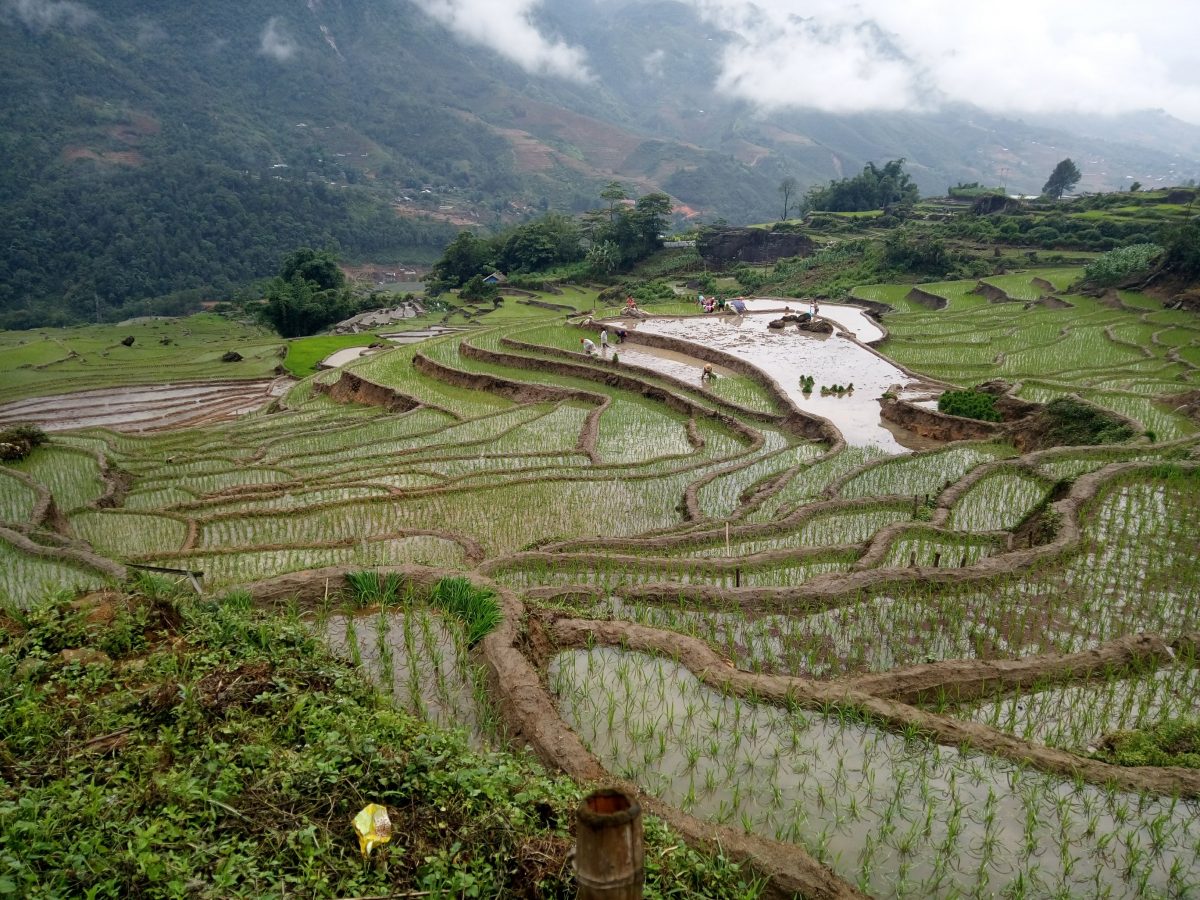
I LOVED Ha Long Bay.
I went in December, which may have been why it was quiet, but we really didn’t have a problem with overcrowding. We did a three-day two-night tour with Indochina Junk, who were wonderful.
Boat life was great fun – there was amazing food, luxury cabins, a sundeck (although we didn’t get any sun!) and a spa – and the scenery was just incredible. Definitely worth it in my opinion.
Likewise, my experience in Sa Pa was completed by the wonderful tour company I used. Ethos does trekking in Sapa tours that are personalized to individual wishes.
This meant that I could hike for as long as I want and where I wanted (within reason) with my guide, who was a local Black Hmong Guide and spoke excellent English (as well as Vietnamese and her native language!).
Ethos employs guides from the impoverished surrounding villages and, using CBT (community-based tourism) initiatives, offers homestays in their house.
It’s really a wonderful company and I cannot recommend them more highly. So basically, for these two touristy spots in Vietnam, choose your tour companies right and you’ll have a swell time, I promise.
You don’t necessarily need a tour to travel in all of Vietnam, but if you’re a nervous traveller or are looking for tour companies to travel as a family, there are quite a few providers like Abercrombie and Kent and G Adventures who offer a range of trips to meet your needs.
English is becoming more commonly spoken
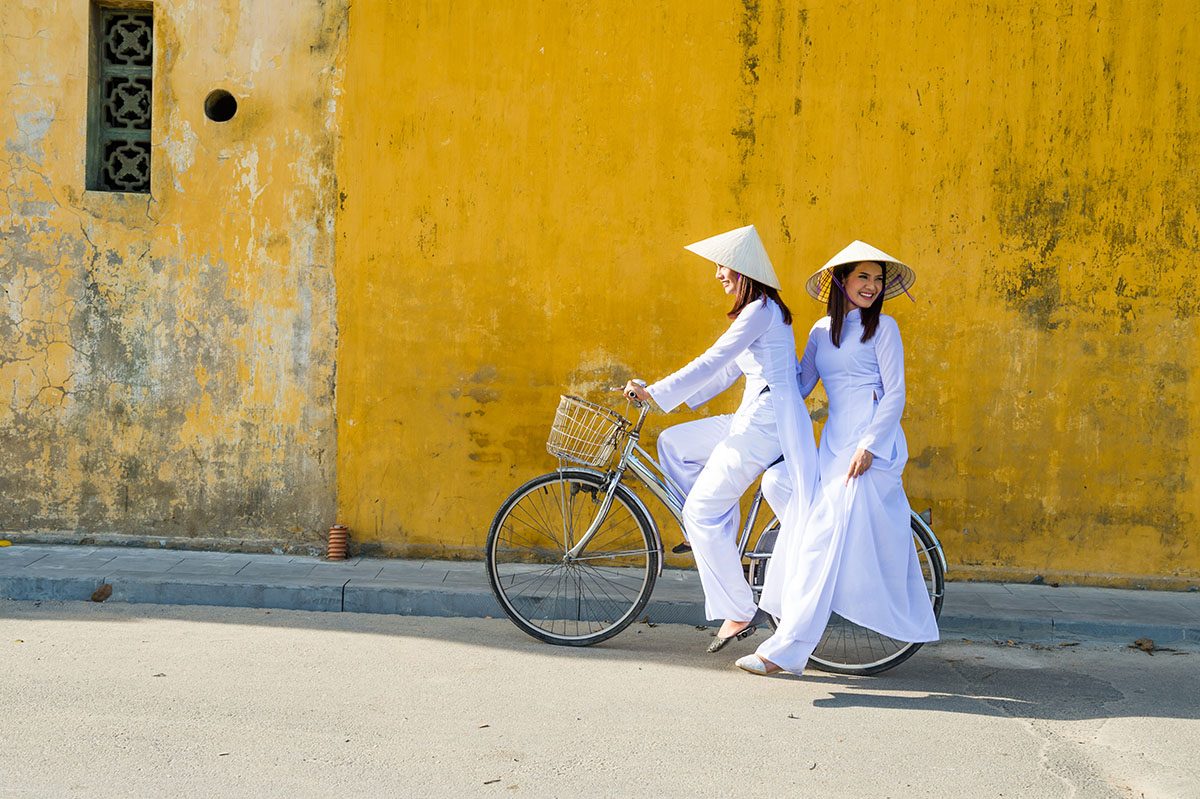
The official language of Vietnam is Vietnamese, and it’s a tricky language.
Rated one of the hardest languages for native English speakers in the world due to its use of tones, it is tough to pick some up while you’re here. But do try to learn Hello (xin chào) and thankyou (cảm ơn) at least.
I’m a big fan of language learning, and I always like to learn some of the local lingo when I travel to different places (I’m writing this on a train in Siberia trying to practice my Russian!). But I will admit that it’s harder in some places than others – and while I don’t like to rely on my native English, it is true that as the global language, some countries focus heavily on learning it.
Vietnam is one of those places. In recent years, they have hired a lot of English teachers to teach both children and adults (if you want to teach English abroad, Vietnam is one of the best-paid countries to do it).
Most people in the tourist industry are fluent or nearly-fluent, and many other people, especially the younger generation, are able to speak a decent level of English.
In the South, many older men can speak English (although understandably a bit rusty) because they fought alongside US troops in the war.
I still think it is important to learn a few words in the native language, and ask if someone can speak English before presuming they can (unless they work in the tourism industry), but generally a good amount of people do speak English and those who can are happy to.
Vietnamese food is the best thing you’ll ever eat
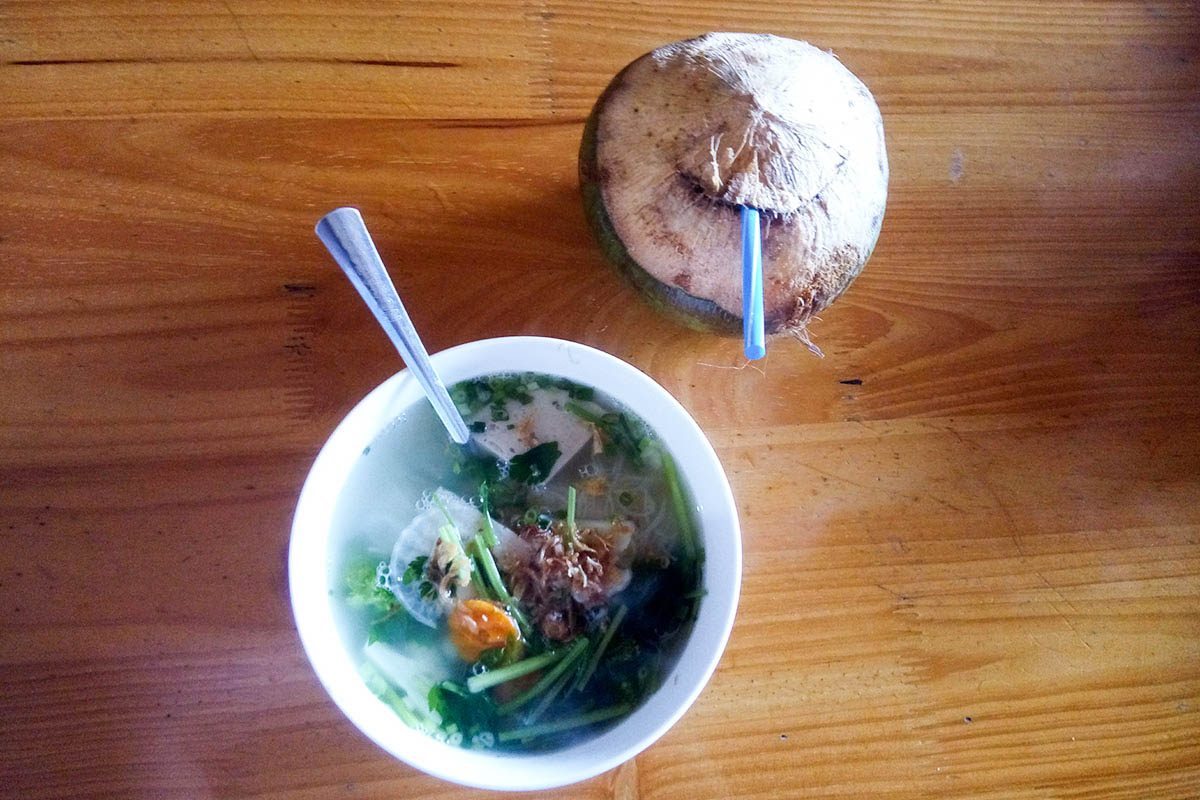
If you were following my Instagram stories last time I was in Vietnam you’ll know I basically lived on Pho.
It’s this noodle soup with a flavourful broth that you can add chilli (I always add lots of it and then spend the next 15 minutes regretting my life choices) as well as lime, lettuce and beansprouts. It’s traditionally served with beef, but if you ain’t got beef/ don’t eat beef, it will be made with either tofu or some kind of mock meat.
I’m not normally a huge fan of mock meat, but this stuff is gooood.
Then there are spring rolls, either fresh or fried. They’re little pieces of magic as well. Vietnamese buffets are popular, with all sorts of dishes being served including the ever popular morning glory – which is basically fried spinach with garlic. In summary, be prepared to eat a lot in Vietnam.
Vegan travel is pretty easy

On that note, travelling as a vegan is pretty easy in Vietnam.
Most of the towns or tourist destinations have vegan or at least vegetarian restaurants, due to both the boom in tourism and its roots as a Buddhist country.
Many temples will have vegetarian restaurants attached. If you’re a travelling vegan or vegetarian, use Happy Cow to find your perfect restaurant match – I use it most days when travelling. In non-vegetarian restaurants, beware of two things: meat stock and fish sauce.
Most phos will have meat stock in them – you could have ‘no meat stock’ translated and show it to your server, but I’m afraid it’s still not guaranteed that it won’t.
Equally, fish sauce finds its way into a lot of things, but I find it easier to ask people to leave it out. All this being said, the only place I’ve really struggled to find vegan food in Vietnam was Moc Chau, which is a very non-touristy area (as in, I saw no other foreign tourists the entire time I was there) in the northwest. Everywhere else has been fine and I’ve been able to enjoy fab food.
Planning a trip to Vietnam…
I hope these travel tips have helped you when planning a trip to Vietnam! It’s a wonderful country, that’s well worth visiting. Brush up with all these need-to-know facts and you’ll have a fantastic time there! If this post has been useful to you, please share it or follow me on Instagram or Youtube!

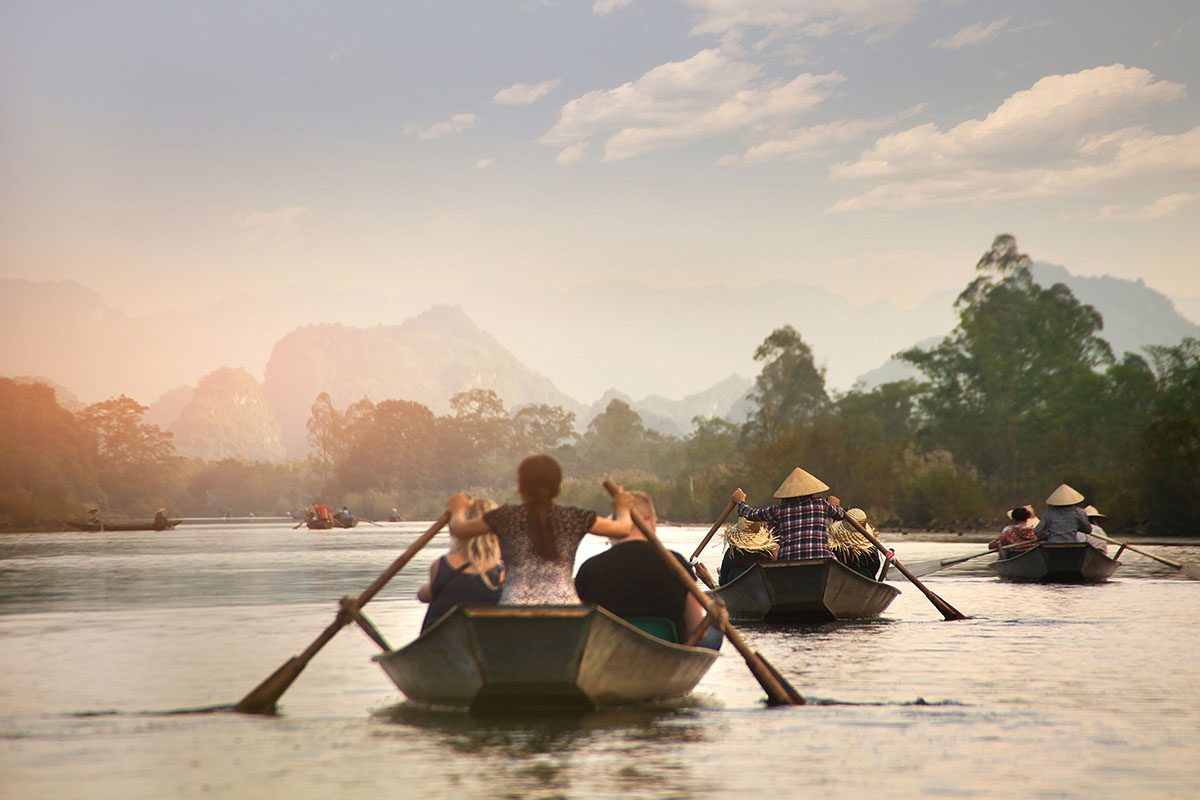
Thank you so much for sharing useful information about Vietnam, we hope to have the chance to welcome you back in Halong Bay